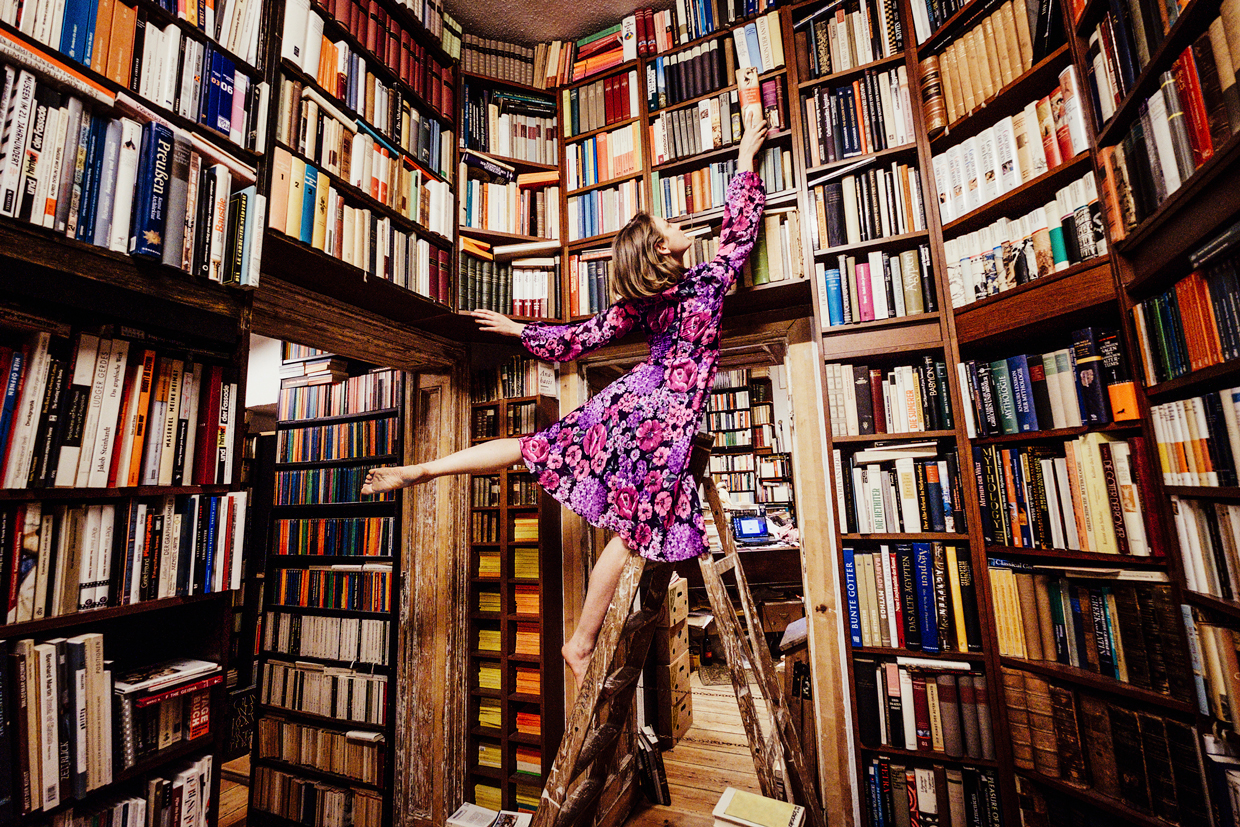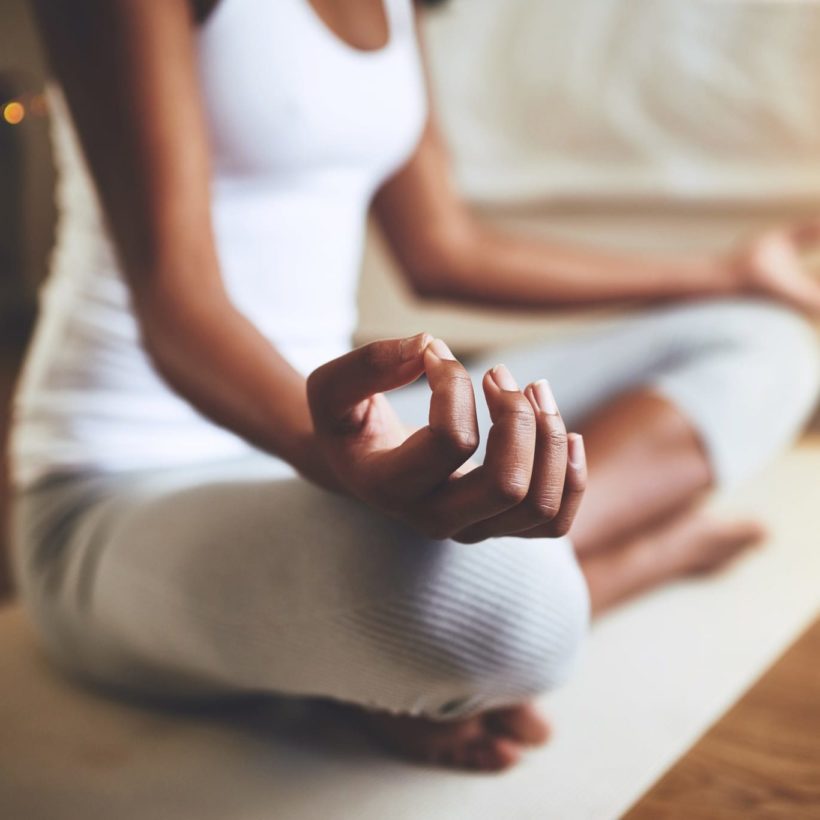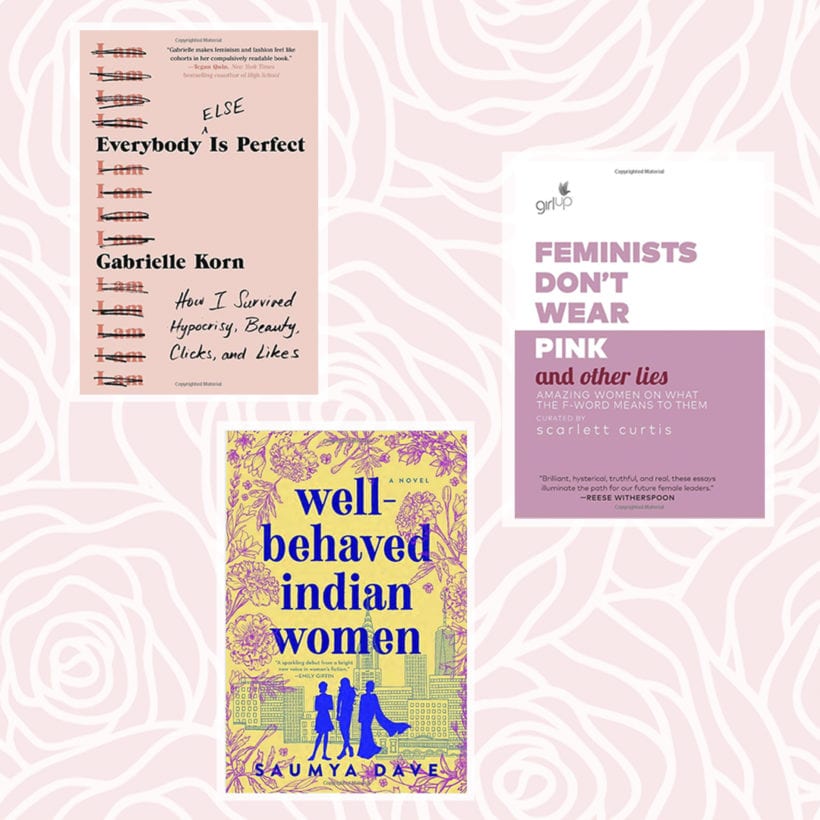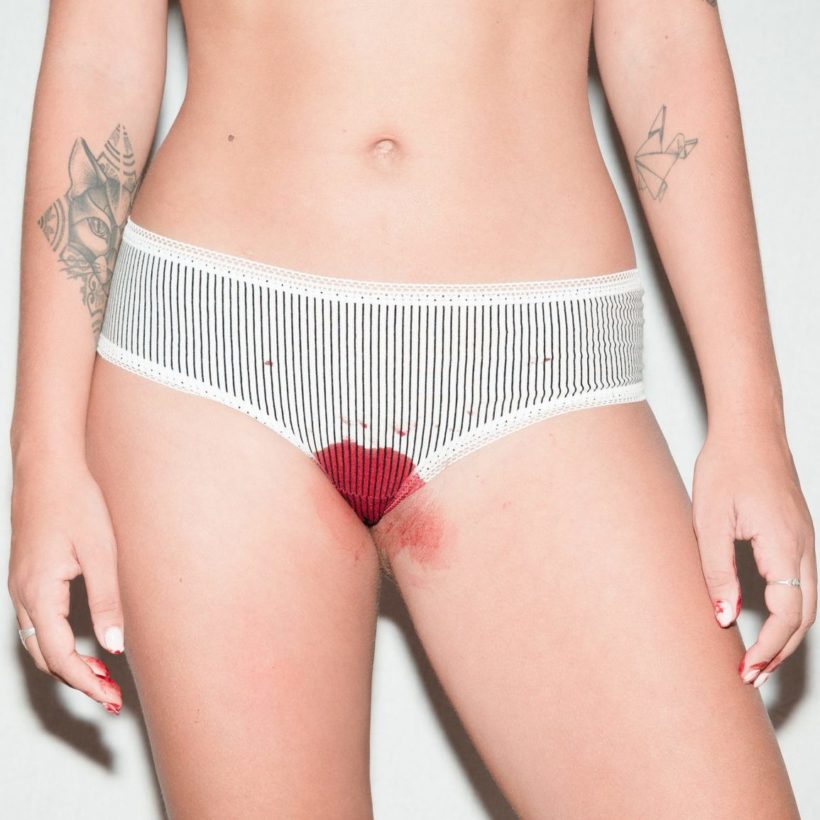When I was a poetry student in college, there was a young woman in my program who always seemed to bubble with creative ideas, like an active geyser. Every five minutes, it seemed, she’d be lightning-struck with a new concept for a poem, or a short film, or an essay, or a novella, or a piece of performance art, or just a really good tweet. Shit, I’d think to myself, struggling to pen one passable sonnet, What part of my brain is missing? By the time I graduated, I’d come to think of myself as an “execution person” rather than an “ideas person” —someone who could see their projects through to completion, but who maybe wasn’t a true “artist” deep down. “I have like one decent idea a year,” I’d joke, brushing off the insecurity that perhaps I just wasn’t naturally all that creative a person.
But over the years, I’ve gathered that finding inspiration (in your work or just your everyday life) is not some sort of heavenly gift; instead, it’s a skill that you can cultivate and hone with practice. Inspiration is out there — it’s everywhere — you just have to put on the right glasses to see it, and then fine-tune your prescription over time. Today I’m the author of two nonfiction books and delighted to be writing in other genres I always thought would be off-limits to me (except for really good tweets… those still elude me, and I’ve accepted that). Giddily, I am also now connected to a cohort of other women authors — poets, novelists, memoirists, and reporters, who each seem to have a chandelier of light bulbs constantly flicking on in their brains. Selfishly, I wanted to know how these dreamy wordsmiths fine-tune their inspiration glasses. Then it dawned on me that I could just ask them.
Whether you technically have a “creative” job or not (though I’d argue that any job can benefit from a little creativity), filling your days with artistic spark is valuable simply for the sake of joie de vivre. Again, it’s a skill, not a gift. So, here are a spattering of actionable creativity tips you won’t find anywhere else from some of the most creative people alive — women authors.
Start your day with movement (and screaming).
“For probably ten years or more, I really let physical movement become secondary to a seated writing practice, and that just doesn’t work for me anymore. I know now I have to move first and often. I find a lot of creative force comes into me after a good walk or stretch, and would recommend movement to anyone feeling stuck or when the [creativity isn’t] flowing. Stand up and swing your arms around. Let out some deep guttural breaths. A primal scream.” — Chelsea Bieker, author of Godshot and Heartbroke
“For me, the best way to find inspiration is to go for a walk first thing in the morning. I grab a cup of coffee, leave my phone at home, and wander. Sometimes, I think writerly thoughts. Other times, I just notice the world around me and feel a sense of awe (or confusion, like when I saw a woman, in the middle of the city, walking a full-grown pig like it was a dog).” — Laura Hankin, author of A Special Place for Women and Happy and You Know It
Set the tone with a “calm vibes” playlist.
“These days, I’ve been listening to calm piano music in the morning (I like the ‘Calm Vibes’ playlist on Spotify). Sometimes, I play it to freestyle dance and move my body and other times, I just have it on in the background while I make breakfast. It’s a small, simple thing, but my main advice is to design your morning in a way that sets the best emotional tone for the rest of your day.” — Majo Molfino, author of Break the Good Girl Myth
Give yourself a motivational mantra.
“I am a creative person who is constantly navigating both anxiety and depression. So when I am in a slump or I am struggling to translate my thoughts onto the page, I repeat the mantra ‘better is coming.’ Lutze Segu, a.k.a. the Social Justice Doula, is the person I learned the mantra from, and it just serves as a reminder that even when I feel stuck or as if I am in a rut, it is an impermanent feeling or reality. There is a breakthrough coming, no matter how long it takes.” — Evette Dionne, author of Lifting As We Climb and Fat Girls Deserve Fairy Tales Too
Record even the most random ideas (you never know what might come of them).
“I voicenote all the time — it’s a major creative ritual for me. Often if I’m taking a quiet walk to clear my head, I’ll hear a melody or a turn of phrase I really like. Sometimes it’ll be tied to something I’m in the middle of writing — a project I’ve already started — or it’ll be completely new and random and just charge forward, like a little sapling springing from the concrete. Instead of dismissing it or hoping I’ll remember it later, I whip out my phone and record a quick voice note. I find that this process is kind of like in yoga, when they tell you to forcefully push out all of your stagnant breath so you’re clear when you leave class. I have to do that with my thoughts and any sudden or lingering ideas to keep my brain creative in all the right ways!” — Ali Kriegsman, author of How to Build a Goddamn Empire
Reorient your perspective (literally).
“When I was a kid and had trouble falling asleep, I would turn my body so that my head was at the foot of the bed. And it always worked — there was something about changing my perspective that tricked my brain into being lulled to sleep. These days, I don’t usually have trouble falling asleep, but when I’m in a creative rut I do something similar: instead of trying to work at my desk, I’ll take my laptop and sit on the sofa, my legs outstretched and my computer resting on a lap desk I bought for this exact purpose. I can feel my whole body, and my mind, relax — and the words start, slowly but surely, to flow.” — Doree Shafrir, author of Thanks for Waiting and Startup
Pick up something heavy.
“One practice that has helped my creativity is going to the gym regularly, specifically weight training. The weights make for a wonderful break from all the bright screens and tiny fonts — and from my own brain, too. I’ll walk into the gym thinking a plot problem is completely insurmountable and when I come out, sweaty and sore, I’ll know exactly what I need to do. I also like standing in front of a barbell and thinking, “That is very, very heavy, but I can pick it up, and I will.” Weight training makes you stronger, but it also teaches you to trust in the power you already have. That’s been invaluable for me.” — Elisabeth Thomas, author of Catherine House
Embrace the good old-fashioned library.
“What keeps me inspired as a writer is my Los Angeles Public Library card and, before that, my Brooklyn Public Library card. I read widely, voraciously, and quickly — and I also review archival material like old newspaper articles for research. The very ability to access so many physical books, digital archives, ebooks, and audiobooks without having to purchase them is deeply inspirational itself.” — Koa Beck, author of White Feminism: From the Suffragettes to Influencers and Who They Leave Behind
Only follow social media accounts that inspire you.
“Whenever I am feeling creatively or spiritually sapped, I find joy looking at an Instagram account called @throwbak.blak. It often posts photos of Black celebrities and historical figures from the past, but it also posts photos of everyday Black people simply living their lives: getting married, heading to church, riding bikes, etc. I love that these individuals, oftentimes anonymous, have been pulled out of the past and placed into the spotlight. Thinking about the lives they might have lived and the highs and lows they might have faced really grounds me, keeps me moving forward.” — Zakiya Dalila Harris, author of The Other Black Girl
Take time to do things with your hands.
“When I was a bartender, I loved prepping my station, especially cutting limes and lemons into neat wedges. At least for me, there’s a peace that comes with doing work that keeps my hands busy but allows my mind to drift and lets my thoughts flow naturally. I no longer bartend, but I’m constantly trying to return to that lime and lemon cutting state — doing things that allow both my body and mind to exist in a place of comfort.” — Jean Kyoung-Frazier, author of Pizza Girl
Look to creatives you admire.
“My tip for unlocking my own creativity is to enjoy the fruit of someone else’s. I like to re-read my favorite books, re-watch my favorite shows (I Love Dick, anybody?), listen to the music of people who inspire me. I like to remember that I’m part of a collective of creatives and that my only job is to add my piece — as authentically and passionately as possible.” — Jill Louise Busby, author of Unfollow Me: Essays on Complicity
Leave the damn house.
“When I’m in a slump and need to feel inspired, I take a walk through Central Park and then the Met. There’s always something there that excites me and motivates me to start creating again! During long days, I keep myself going with chocolate-covered espresso beans (in bulk) and Caudalie Grape Water facial mist.” — Lilly Dancyger, author of Negative Space
Use mindfulness to find beauty in the “boring.”
“For me, the key to finding inspiration and freshness all around me — in my cat’s face, in the plants in my yard, even in my stale-ass living room I’ve been staring at for a year and a half — is cultivating a mindfulness practice. Most days, I try to do a 15-minute yoga flow (this one led by Isabel Paige is my favorite) or get out of my house and take a walk to shake up my brain… or, (from time to time) partake in some sort of mind-altering substance (for creativity, I swear!). Finding a way to see everyday stuff anew — and to draw connections between seemingly unrelated things — challenges me to come up with ideas and language I might not otherwise.” — Amanda Montell, author of Cultish: The Language of Fanaticism and Wordslut: A Feminist Guide to Taking Back the English Language
Try observing “tech Shabbat.”
“This spring, after writing a piece for the New York Times about the rise of Instavangelists and my profound ache for something deeper than the infinite scroll, I started turning off my phone and laptop from sunset on Friday to sunset(ish) on Saturday. Tiffany Shlain, author of 24/6: The Power of Unplugging One Day a Week coined the term Tech Shabbat with her husband Ken Goldberg, more than a decade ago. While I observe the tech sabbath, my mind is free to wander, process, and rest. Without the constant stimulation available to me on my phone, I come up with creative new ideas (without even trying), and it’s the only time of the week my body lets down her guard to take a nap.” — Leigh Stein, author of five books including Self Care and What to Miss When
Get some face-to-face human contact.
“When I’m stuck creatively, the only thing that helps (other than a glass of wine, which is just pure witchcraft) is getting out and people-watching, people-talking, anything people related. Quite frankly, I’m not sure if life imitates art or if art imitates life, but nothing — and I mean nothing — opens my mind like the language people use when getting at the truth of who they are. And oftentimes, the truth is stranger than fiction.” — Iman Hariri-Kia, author of the forthcoming A Hundred Other Girls
Don’t force it.
“Writing is a joy and a privilege and I think if I forced it, it would lose that magic for me. Instead, if I’m stuck, I basically do everything BUT write, and I don’t mean just cleaning my room. For me, in order to be creative, I have to see and experience new things and places, talk to people, read books. It’s only after experiencing newness that I feel that spark of an idea. I will never be one of those people who wakes up early every day and just writes until an idea forms.” — Gabrielle Korn, author of Everybody (Else) Is Perfect
When in doubt, channel a little ~magic~…
“I love using a tarot deck to stoke creativity. I read tarot for all the regular reasons, too (insight, prognostication… all with a bit of a wink), but when I’m stuck on a problem — in life or in one of my manuscripts — I bust out the cards and draw some for guidance. They’re just imprecise enough that trying to squeeze a directive out of their general meanings (go on a journey! Choose with your head, not your heart! A windfall is coming!) always gets me to look at the issue in a new way and consider fresh possibilities. I have a few decks I really love; Rider-Waite is my go-to, but The Field Tarot by Hannah Elizabeth Fofana is like art.” — Andrea Bartz, author of We Were Never Here, The Herd, and The Lost Night
…or look to the stars…
“Lately I’ve been trying to think of my creativity as a ‘whole body’ process, which can be hard for someone who spends so much time in her head. Whenever I’m feeling disconnected from the body that houses me, checking in with the Chani Nicholas astrology app always gets me together and reminds me of my place in the universe. That I can re-center and redirect myself and my energy at any time.” — Dantiel W. Moniz, author of Milk, Blood, Heat
…or quiet life’s everyday noise to tune into something greater.
“Lately, when I feel stuck, I get inspired by attempting to discern and connect with what I imagine to be a universal consciousness. The idea is to quiet my habitual thoughts, to locate and vibrate with a more expansive frequency. As a young person, I studied classical violin, and in orchestra, we all tuned our instruments to the piano’s A. I think of it in this way: tuning myself to the universal A.” — Forsyth Harmon, author of Justine
And remember: What you make doesn’t have to be genius… it just has to be something.
“On days when inspiration or motivation is a challenge, I rely on a simple (but magical) mantra: something is better than nothing. One hour of writing is better than zero; a short, lazy workout is better than none at all. The magic trick is that once I get started I always hit my stride and go beyond my minimum goal. All I needed was to take the pressure off myself to be perfect.” — Camille Perri, author of The Assistants and When Katie Met Cassidy
We only recommend products we have independently researched, tested, and loved. If you purchase a product found through our links, Sunday Edit may earn an affiliate commission.


























